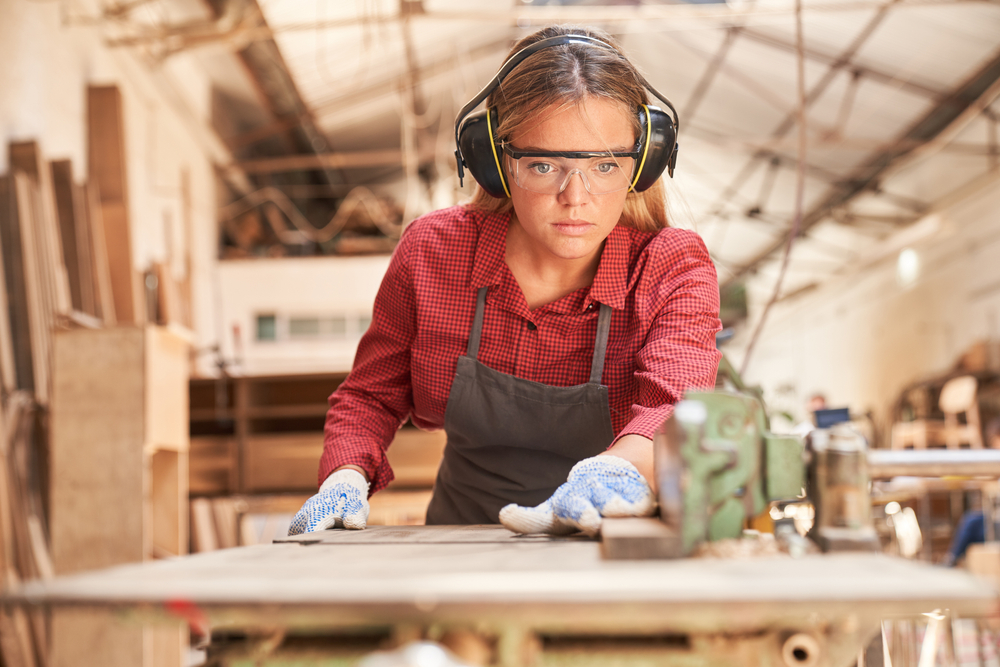
Whether you’re attending concerts, at work, or doing some yard work, hearing protection is crucial in keeping your ears safe from harmful noise levels. However, a number of factors can impact the effectiveness of your hearing protection, leaving you exposed to possible risks. In order to understand and successfully maximize the benefits of your ear protection, it’s crucial to understand these issues.
Common reasons why hearing protection falters
Even when you observe best practices, unexpected issues can arise. You use your earmuffs faithfully at work, wear earplugs at concerts, and avoid noisy situations whenever possible. Yet, some variables can still interfere with your hearing protection’s effectiveness. Fortunately, you can ensure the protection of your hearing by becoming aware of these common pitfalls and making informed adjustments.
1. Specific situations call for specific types of hearing protection
The effectiveness of hearing protection can be reduced by picking the wrong type for the given situation.
Generally, hearing protection comes in two main categories:
- Earmuffs: Bigger, headphone-like device that covers the whole ear.
- Earplugs: Little foam or rubber plugs that tuck tightly into the ear canal.
There is an ideal type for each situation:
- In settings like a construction site where noise is irregular and you might need to regularly remove your hearing protection, earmuffs are the better choice.
- Earplugs are best suited for environments with constant noise levels, including factory floors or airplane cabins.
Earmuffs are easier to handle when there is a need to regularly put on and remove your hearing protection. However, earplugs, especially disposable ones, can be easily lost, leaving you exposed when noise levels rise again. The first step towards effectively protecting your hearing is to choose the right type of hearing protection.
2. Fit and function are impacted by anatomy
Some devices will fit better than others based on the size and shape of the person’s ears. Basic earplugs and earmuffs are usually designed for average dimensions, but your ear anatomy might require a more individualized solution.
- Smaller ear canals: The noise-blocking capability of standard-sized earplugs might not be effective if narrower ear canals prevent the formation of a proper seal.
- Larger ear structures: Earmuffs may be uncomfortable if your ears are larger than average causing gaps in the seal.
Poorly fitting hearing protection can result in frustration and a temptation to abandon their use altogether, putting your hearing at risk. If you spend significant time in noisy settings, consider investing in custom-molded earplugs or professionally fitted earmuffs. Deciding to go with a more personalized approach will provide you with greater comfort and effectiveness, keeping your hearing safe in any situation.
3. Ignoring regular maintenance and replacement
Like any piece of equipment, hearing protection devices require upkeep to remain effective. Their ability to provide sufficient protection can be compromised by things like incorrect cleaning, wear and tear, and failure to replace them when necessary.
Here’s how to maintain your hearing protection:
- Check for Damage: Check the elastic band on earmuffs regularly. Their ability to effectively block noise can be jeopardized if the elastic band is loose or stretched.
- Replace Cushions: The flexibility of earmuff cushions can decrease over time. Replace them as needed to maintain a proper seal.
- Clean Properly: Earplugs and earmuffs are exposed to earwax and other debris, which can accumulate over time. Clean them regularly using manufacturer-recommended techniques to ensure cleanliness without damaging the material.
Ignoring these simple maintenance duties can leave your hearing protection less effective or even unusable. Regular upkeep is essential to extend their lifespan and ensure reliable performance.
What is the role of a hearing specialist?
Make an appointment with us for an assessment if you think that your ear protection may not be working. After checking your devices, we can help you with a customized solution that will work best for you.
Keeping your hearing safe is a commitment that lasts a lifetime and it’s crucial that you do it with the right tools. You can safeguard and preserve your hearing for many years by managing these common challenges.
